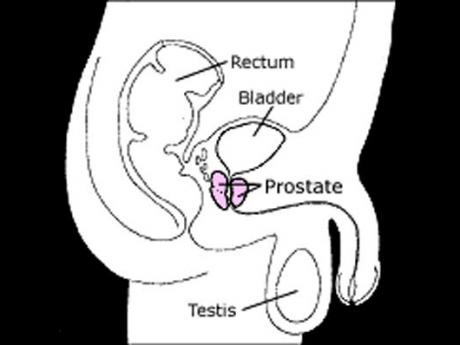Prostate cancer comes under scrutiny
September is National Prostate Cancer Awareness Month
THE MONTH of September has been designated as National Prostate Cancer Awareness Month to bring attention to this very common type of cancer that is the leading cause of death in many Jamaican men.
Prostate cancer is a major burden in Jamaica. It ranks as the commonest cancer in the island, and it is the leading cause of cancer-related deaths in men. Between 1998 and 2002, the Jamaica Cancer Registry reported that 873 new cases of prostate cancer were diagnosed in the Kingston and St Andrew region of Jamaica.
Kingston and St Andrew represent approximately 26 per cent of the population of Jamaica, which is estimated at almost three million people. In 1999, there were 445 reported deaths from prostate cancer in Jamaica. This figure represented 30 per cent of all male cancer-related deaths and is the only available data published on cancer mortality in Jamaica.
Advanced age, being of black descent, family history, and dietary habits are significant risk factors for development of the disease. Early and regular screening for prostate cancer has the potential to reduce the burden of the metastatic disease and significantly reduce mortality. Recently, the relevance of prostate cancer screening has been questioned; however, the importance and relevance is undeniable in high-risk individuals (blacks and family history).
WHAT IS THE PROSTATE AND THE SIGNS OF CANCER
The prostate gland is a part of the male reproductive system that produces a fluid that mixes with sperm to produce semen during ejaculation. It sits just below the bladder and is normally about the side of a walnut.
Prostate cancer, especially in its early stages, may not have any symptoms. When symptoms are present, they may include difficulty urinating, reduced urine stream, dribbling at the end of urination, needing to urinate frequently, urinating frequently at night, pain while urinating, blood in the urine or semen, difficulty getting or maintaining an erection, pain with ejaculation, pain or stiffness in the lower back, hips, pelvis and upper thighs, or unintended weight loss.
When screening is done, there are two tests that are available. The available tests are a digital rectal exam (DRE) and prostate-specific antigen (PSA) test. To perform a digital rectal exam, your doctor uses a gloved finger, which is inserted a few inches into the rectum to check the prostate gland.
A PSA test, on the other hand, is a blood test that measures the level of PSA in your blood. Many men who have prostate cancer have elevated levels of PSA. However, PSA can also be elevated for less serious reasons, such as prostate enlargement or infection.
Further testing is needed to diagnose cancer. Additional tests that your doctor may recommend to diagnose cancer include an ultrasound of the prostate and a biopsy of the prostate. A biopsy is when a small piece of the prostate is removed to look for abnormal cells.
TREATMENT OF PROSTATE CANCER
Treatment of prostate cancer depends on many factors, including your age, your overall health and the growth and spread of the cancer when it is diagnosed. Some men who have slow growing tumours may not need treatment right away and some may never need treatment.
Other types of prostate cancer are aggressive and can quickly spread to other parts of the body, making treatment difficult. Common treatment options include watchful waiting or expectant management (regular testing and check-ups to assess for new signs or symptoms), radiation therapy (high-energy x-rays used to kill cancer cells), chemotherapy, surgery (having the prostate gland removed) and hormone therapy.
The Jamaica Cancer Society (JCS) currently has the largest and most-organised screening clinic for prostate cancer in Jamaica. The JCS is a non-profit, non-governmental organisation that was formed in 1955 to initiate and engage in activities for the prevention and control of cancer in Jamaica.
The head office is located in Kingston, with three branches in the parishes of St Ann/St Mary, Manchester, and St Elizabeth. Screening services are provided by volunteer members of the Jamaica Urological Society. Recommendations for screening are annual visits commencing at age 40.
Males presenting for screening have digital rectal examinations (DRE) and PSA. Men with abnormal PSAs and DREs are recommended for confirmatory transrectal ultrasound (TRUS) guided biopsies. All men diagnosed with prostate cancer are referred for treatment at a urology clinic of their choice.
SOURCE: Ministry of Health and Wellness
DID YOU KNOW?
· All men are at risk of developing prostate cancer and the risk increases as they grow older
· Prostate cancer is the main cause of cancer-related deaths among Jamaican adult males
· 304 per 100,000 men in Jamaica will be diagnosed with prostate cancer
· A study of prostate cancer among Caribbean men of African descent revealed that there was a 270 per cent increase in the disease among Jamaican men between 1983 and 2007.
· Four out of five cases of prostate cancer are diagnosed in men over 65 years old.




